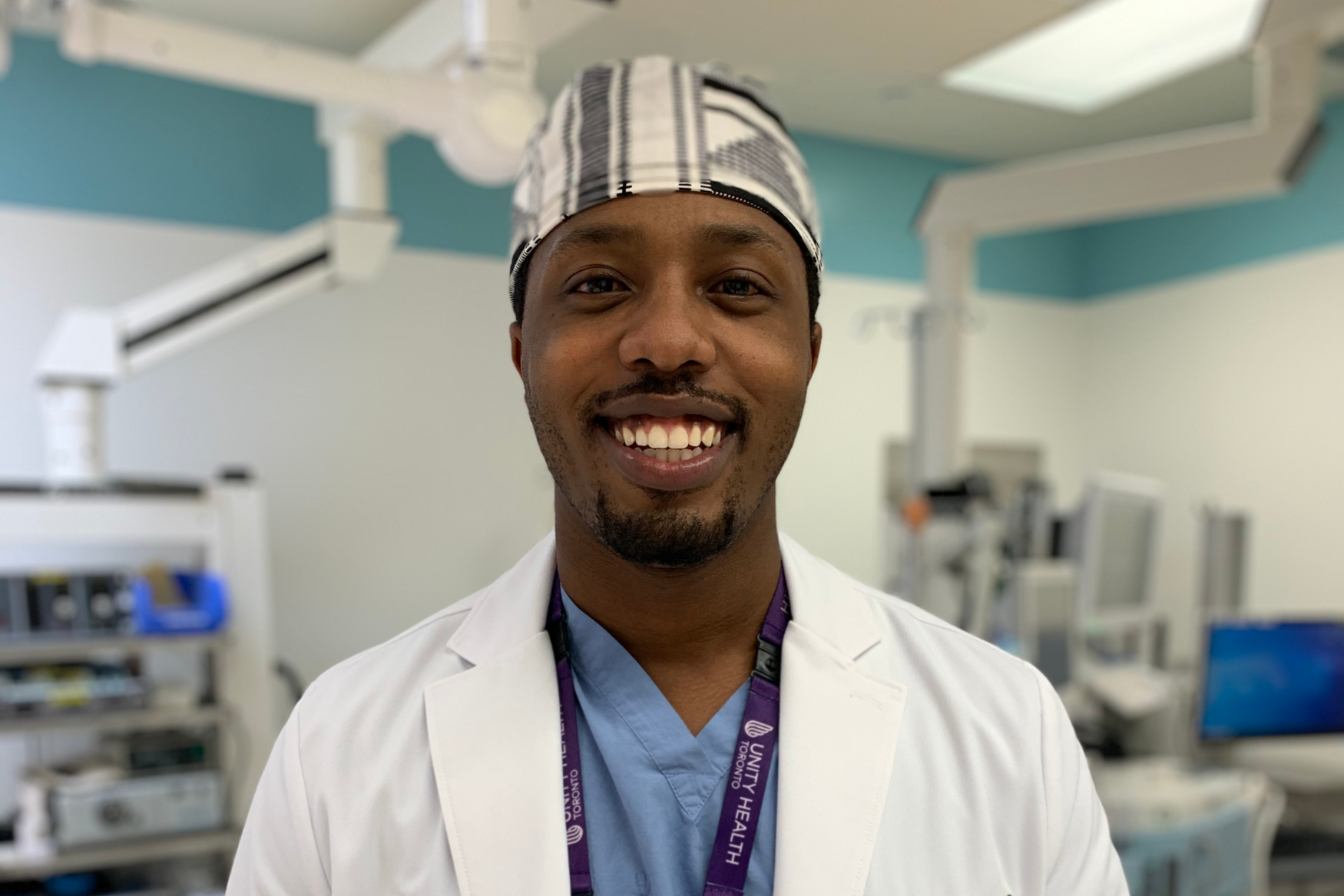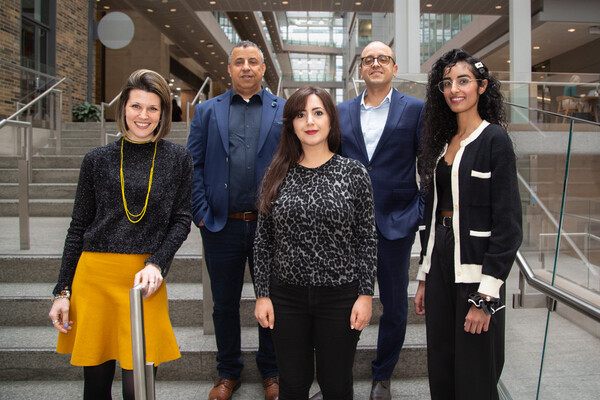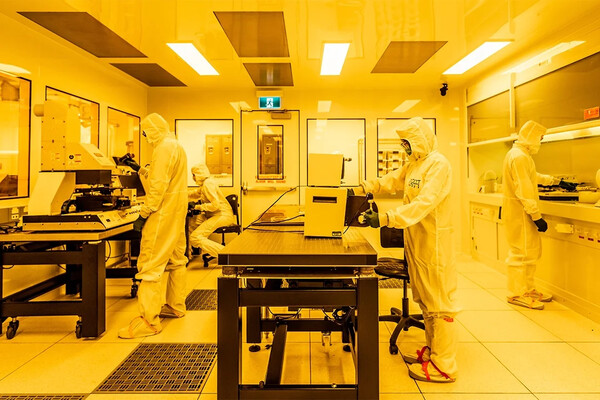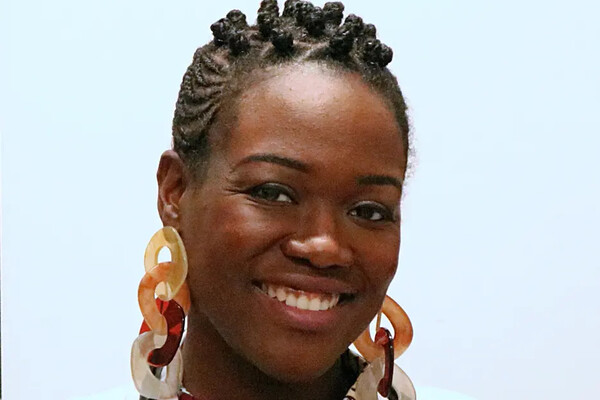Faces of Temerty Medicine: Adom Bondzi-Simpson

Dr. Adom Bondzi-Simpson always knew he wanted to be a doctor, but it wasn’t until he stepped into an operating room during clerkship that he felt compelled to pursue a surgical speciality. Now a second-year surgery resident at the Temerty Faculty of Medicine, Bondzi-Simpson shares what helped him on his journey to medicine, how his residency experience has been impacted by the COVID-19 pandemic and advice for the next generation of Black students interested in pursuing scientific or medical careers.
What did you do before joining Temerty Medicine?
I completed my undergraduate studies at Brock University in Medical Sciences and then moved to Calgary for a Master’s degree in Immunology. I stayed in Calgary for medical school and was fortunate enough to come back home to Toronto for residency!
What made you want to become a physician?
Growing up, I had phenomenal guidance and wisdom from my family and community. Like many African immigrant households, a high emphasis is placed on traditional career paths such as medicine, law, engineering or accounting. My household wasn’t an exception. From the time I could speak, I knew I was going to be a doctor when I grew up.
Both of my grandfathers were physicians in their home countries of Ghana & South Africa. Although they weren’t present physically with me growing up, my mother and grandmother kept their achievements and the story of our African oral history alive through praise poetry (or ‘izibongo’ in Zulu). I grew up constantly hearing about Nelson Mandela, Bishop Tutu, Chief Albert Luthuli, and my family members who were involved in the early anti-apartheid movements in South Africa. I felt proud and empowered to achieve my goals because I was constantly reminded about those before me who were able to impact their communities in a positive way. I realized early on that my goal was to contribute to the health of my community as a physician.
My journey to becoming a physician started off with my medical sciences degree at Brock University. I was fascinated by biology and physiology. In my personal life, I was passionate about sport and the health of my community. I was involved in athletics as a varsity athlete on the basketball team and spent a lot of my work and volunteer time doing things that I genuinely enjoyed, like coaching youth basketball, refereeing intramurals, and working as a student peer health educator.
After undergrad, I went to the University of Calgary to pursue a Master’s degree in Immunology. I worked in a translational lab under the supervision of a Nephrologist. In the lab I learned first-hand how medical innovation was intimately tied with patient care, and it was during that time I applied for medical school. I was fortunate enough to be accepted into medical school in Calgary, and I’ve been on this journey ever since.
Did you have any mentors or people who’ve supported you along the way?
I grew up in a household of strong women. I was raised by my mother and grandmother, who were both educators. The way they juggled raising two boys, after-school sports, ensuring our schoolwork got done and fostering a caring a loving environment was everything. They are my real-life superheroes!
Outside of the home, my experience in sports taught me team play, hard work, and perseverance. My high school basketball coach was my biggest role model, and his motto was “just figure it out!” He didn’t offer many solutions, but he empowered us as young men to be curious, innovative, and tenacious in our efforts to solve a problem when we faced challenges.
In terms of sparking an interest in surgery, I met fantastic role models during my time in medical school. I happened to meet a few black general surgery residents and staff, and their presence and excellence really inspired me.
You’re currently a general surgery resident in Toronto. Did you always want to be a surgeon? What are your favourite things about this specialty?
Some people come into medical school with specific career paths in mind. That wasn’t particularly the case for me, and I tried to keep an open mind. I thought about internal medicine and emergency medicine because I really enjoyed complex medical care and acuity. However, I quickly realized the moment I stepped inside an operating room that I felt at home.
During my clerkship rotation, I saw how general surgeons delivered safe and effective patient-centred care for complex critically ill and injured patients. I loved the operating room, but I quickly noticed that the OR was just one small piece of the whole picture. Hearing the stories of patients and their families in the clinic, counselling them through challenging circumstances, seeing sick patients in the emergency department, and ensuring their safe discharge home after a hospital admission was what it was all about. I thought I was blown away by the operation, but I was equally impressed by how amazing surgeons cared for their patients and their families at every stage in their surgical journey.
There is also tremendous breadth and opportunity to shape your practice in any way that suits you in general surgery. You can become anything from a highly specialized liver transplant surgeon working in an academic centre to a rural community surgeon with a wide-ranging practice doing everything from colon cancer surgery to lumps and bumps and c-sections. General surgery was the ultimate balance for me.
How has residency been so far? Has COVID-19 impacted the experience?
Residency has been truly phenomenal. At the University of Toronto, we are privileged to have access to cutting-edge technology, infrastructure and research right at our fingertips. The Department of Surgery is at the forefront of medicine, and I feel extremely fortunate to train here with a fantastic group of people.
Being a resident during COVID-19 has come with a unique set of challenges. I was on my emergency medicine rotation at Sunnybrook in the spring of 2020, and I recall during those early COVID times feeling a sense of nervousness going to work. But you adapt, you show up, and you continue to provide the care to patients who need it. COVID-19 has certainly been a marathon and not a sprint, but I think people have been courageous and so strong in their endurance and efforts to beat COVID-19.
It’s Black History Month right now. As a Black physician, what does Black History Month mean to you?
Black history month is about a celebration of black innovation, ingenuity, excellence, and joy. Black history month – for me – serves as a reminder to continue to embark on a journey to understand my African-Canadian history and the contributions of Black Canadians from a multitude of cultural and ethnic backgrounds. Black history is about re-structuring the narrative surrounding Blackness and re-imagining what the future holds for the next generation of Black leaders in our country.
What advice would you give to the next generation of Black students who are interested in pursuing careers in medicine or research?
Go for it! Seek out as much mentorship as you can. Put yourself out there and be relentless with your goals. For those interested in research it is a fantastic pursuit. Medical research is at the crux of our healthcare system. Whether it is basic sciences, clinical research, medical education, healthcare services research or a host of other opportunities, the production of new knowledge is how we continue to push the envelope on health.
For those interested in medical school, do not feel as if you need to fit the mould of a cookie-cutter application. I would advise you to keep doing what you are most passionate about, and your story will shine brightly on your application! The journey to medical school can be long, winding, and difficult but even if you fall down somewhere along the way, you fall forward. It took me two MCATs and a few applications to get in myself.
Whatever you decide, lean on your support systems and your community. Feel free to reach out to me or others along your journey. You can do it and I’m proud of you for all the hard work that you’ve done to get to this point. Keep pushing the boundaries – we’ve got more work to do!
PS. If you’re a medical student and you’re interested in surgery, we have started a mentorship program for underrepresented minorities in medicine called UPSurge! Find out more here: https://surgery.utoronto.ca/mentorship
News


